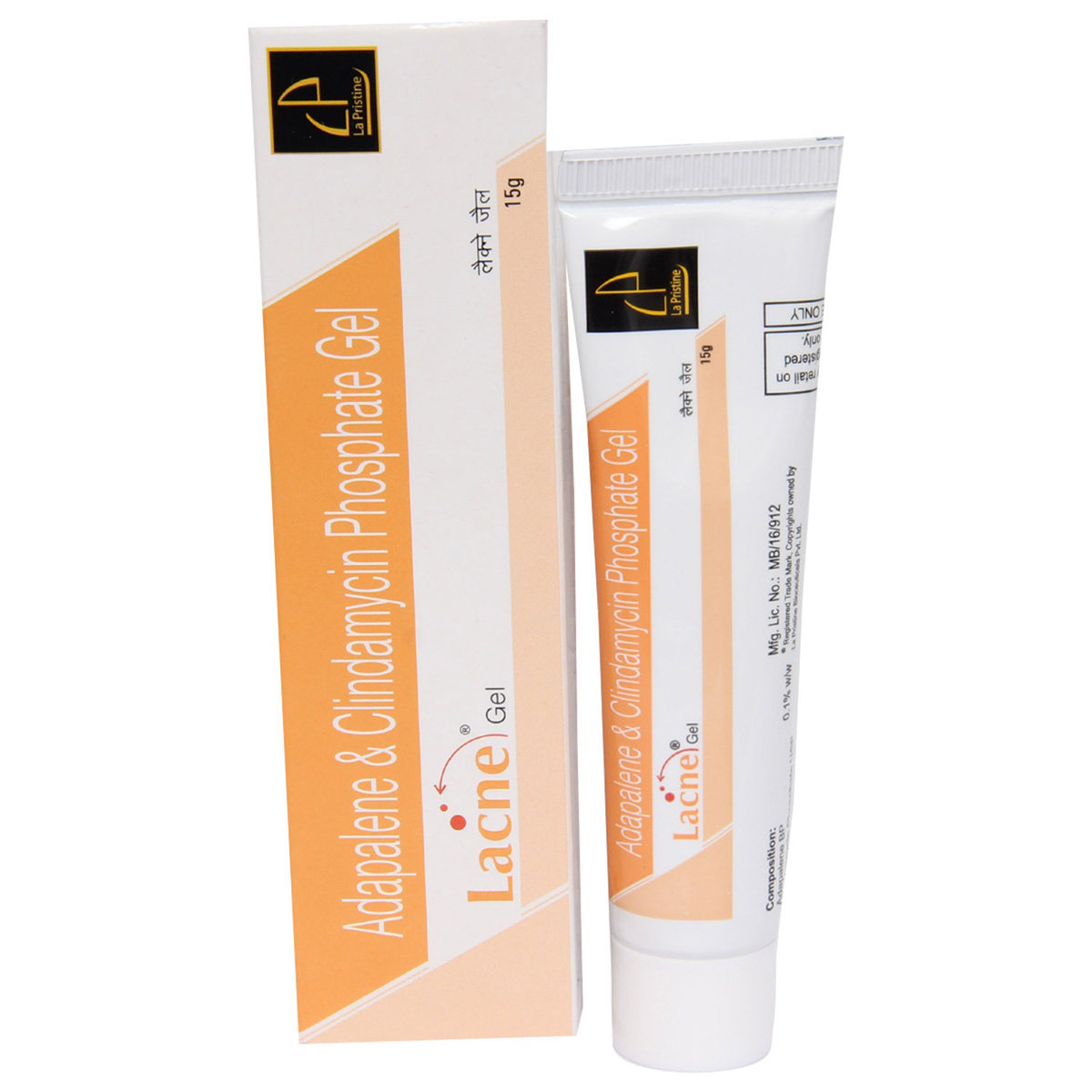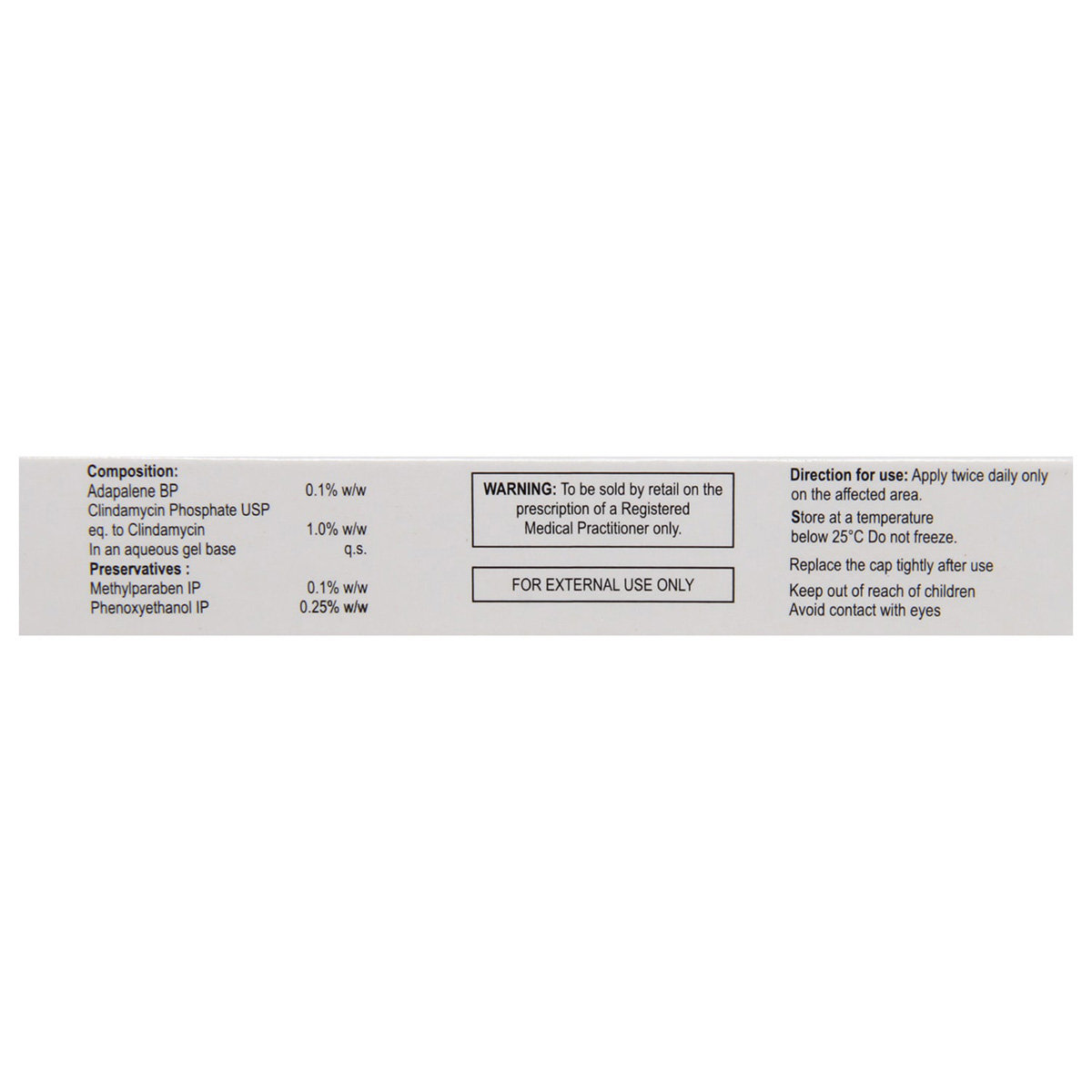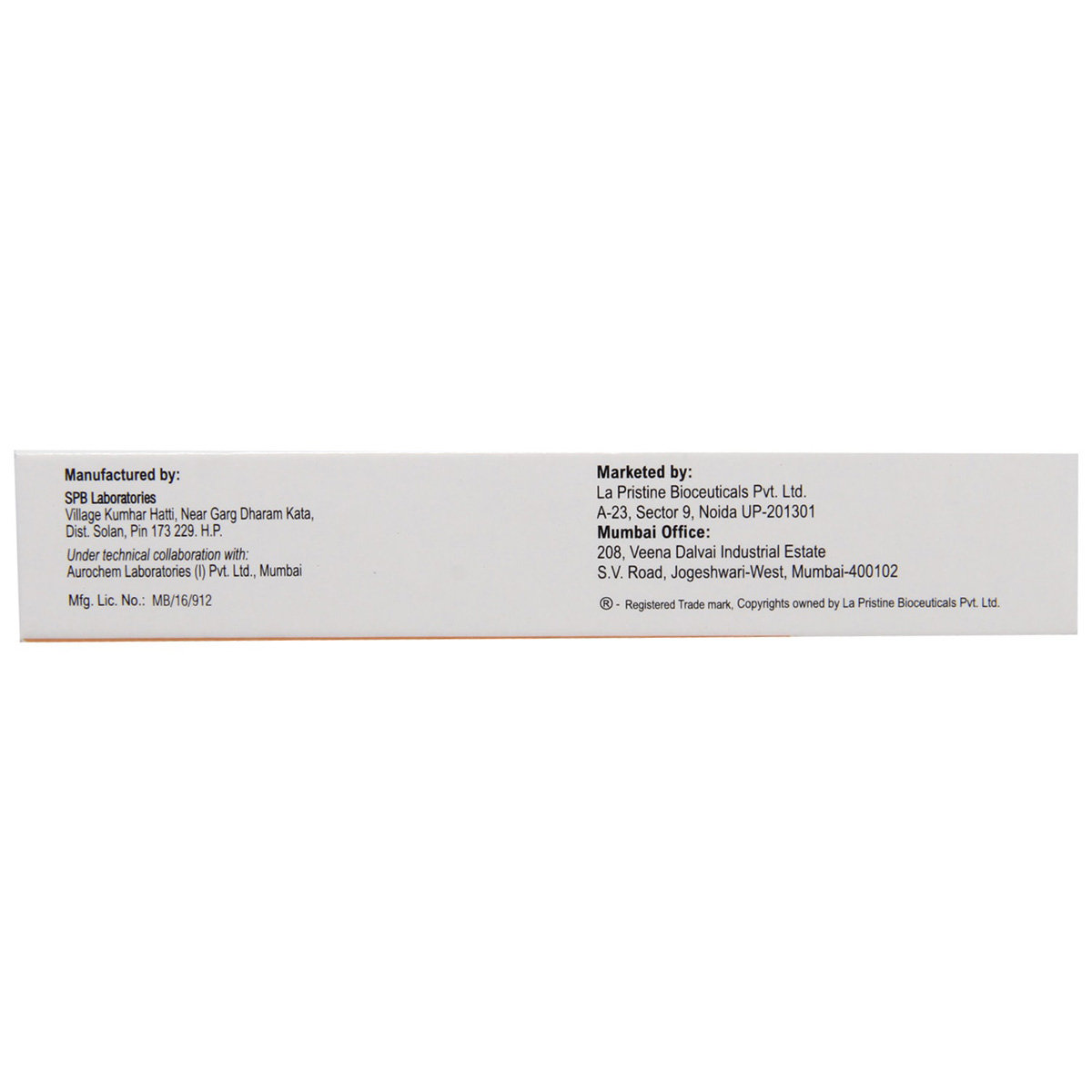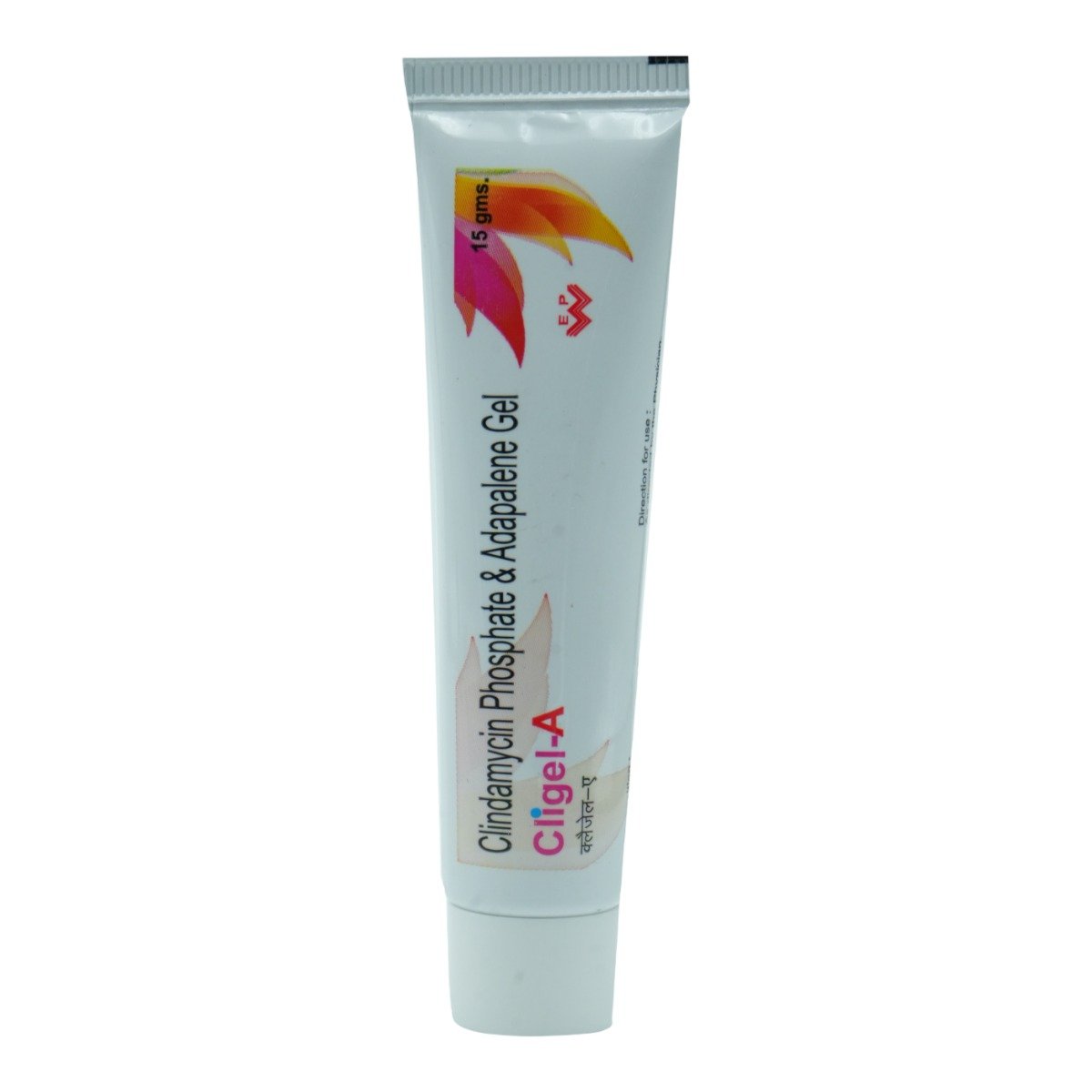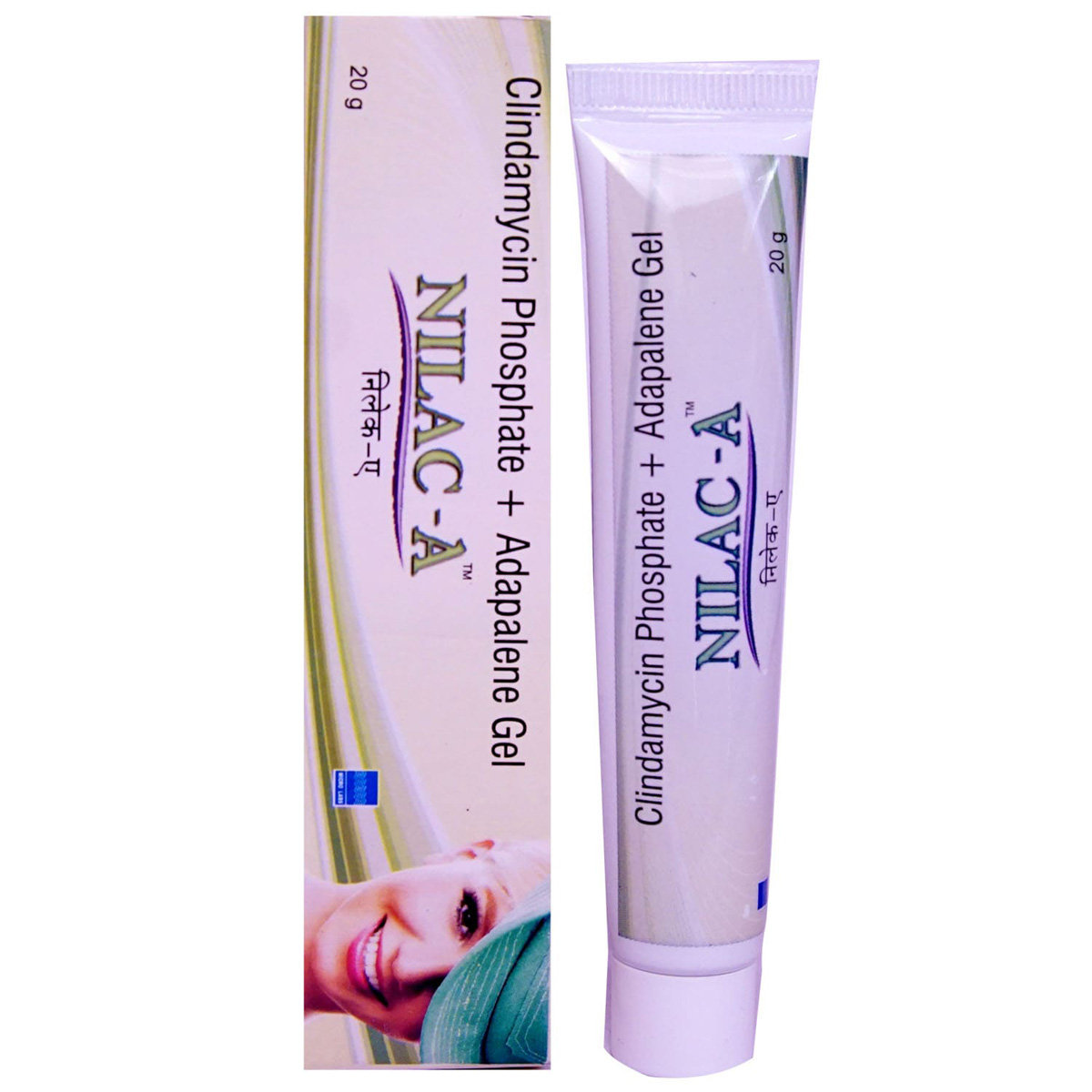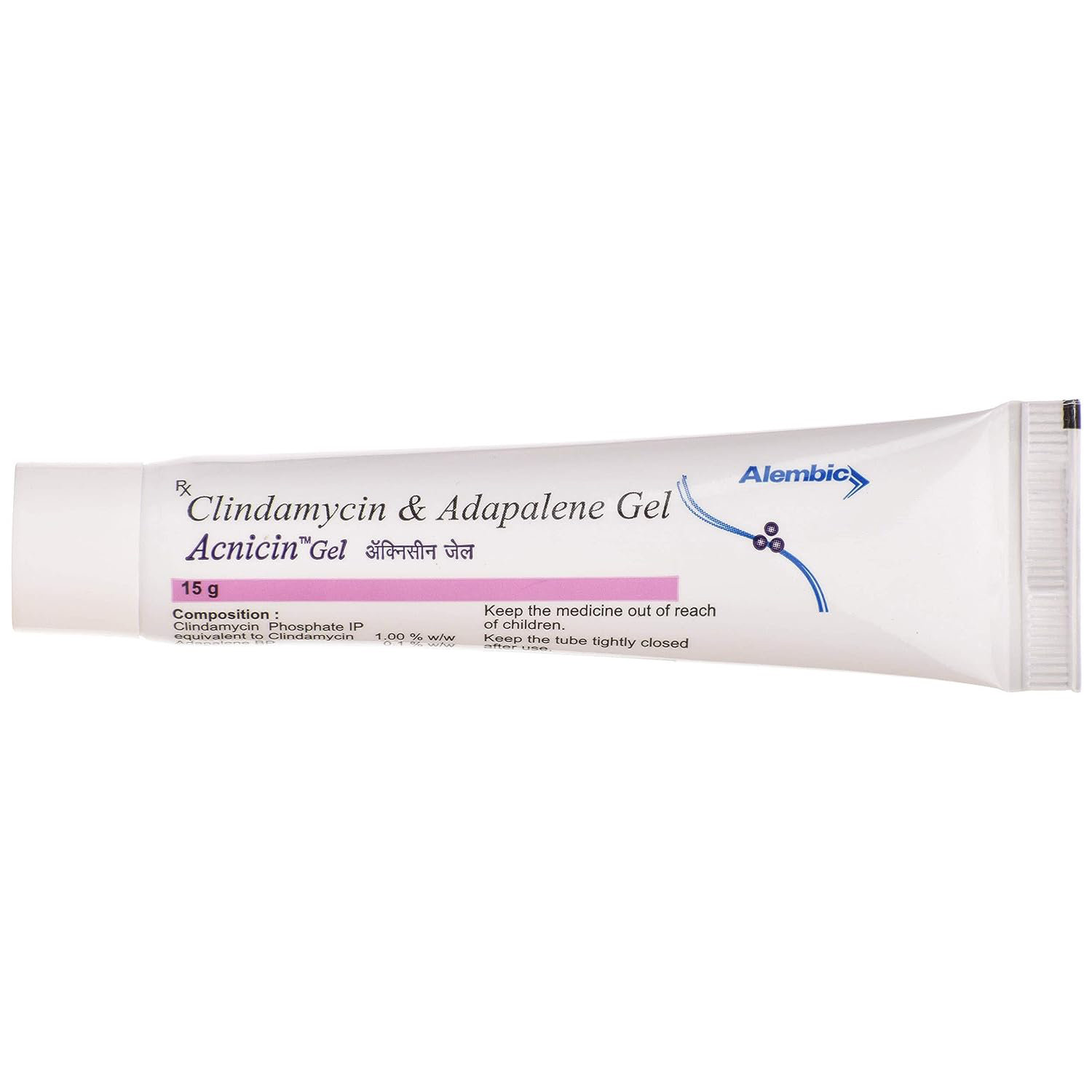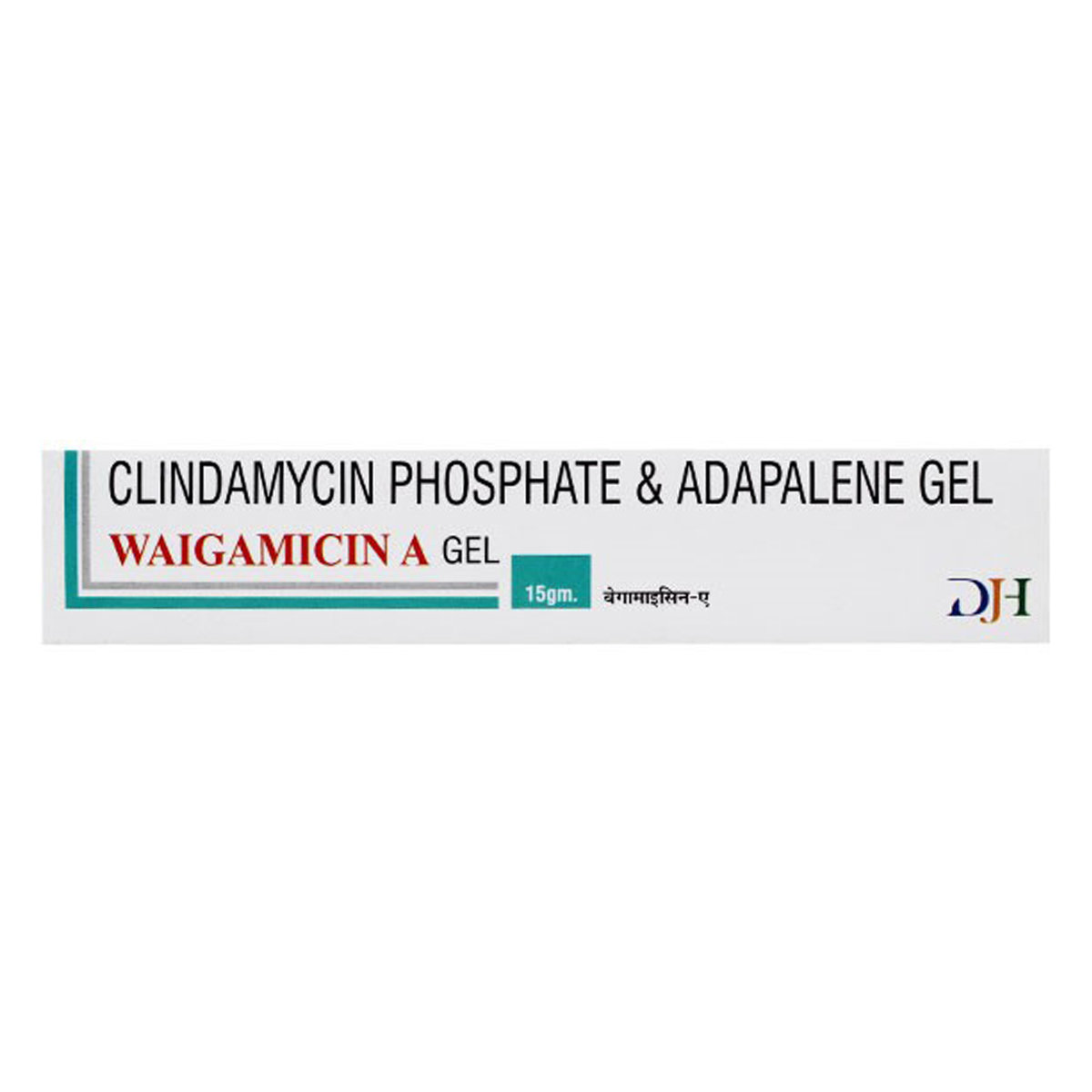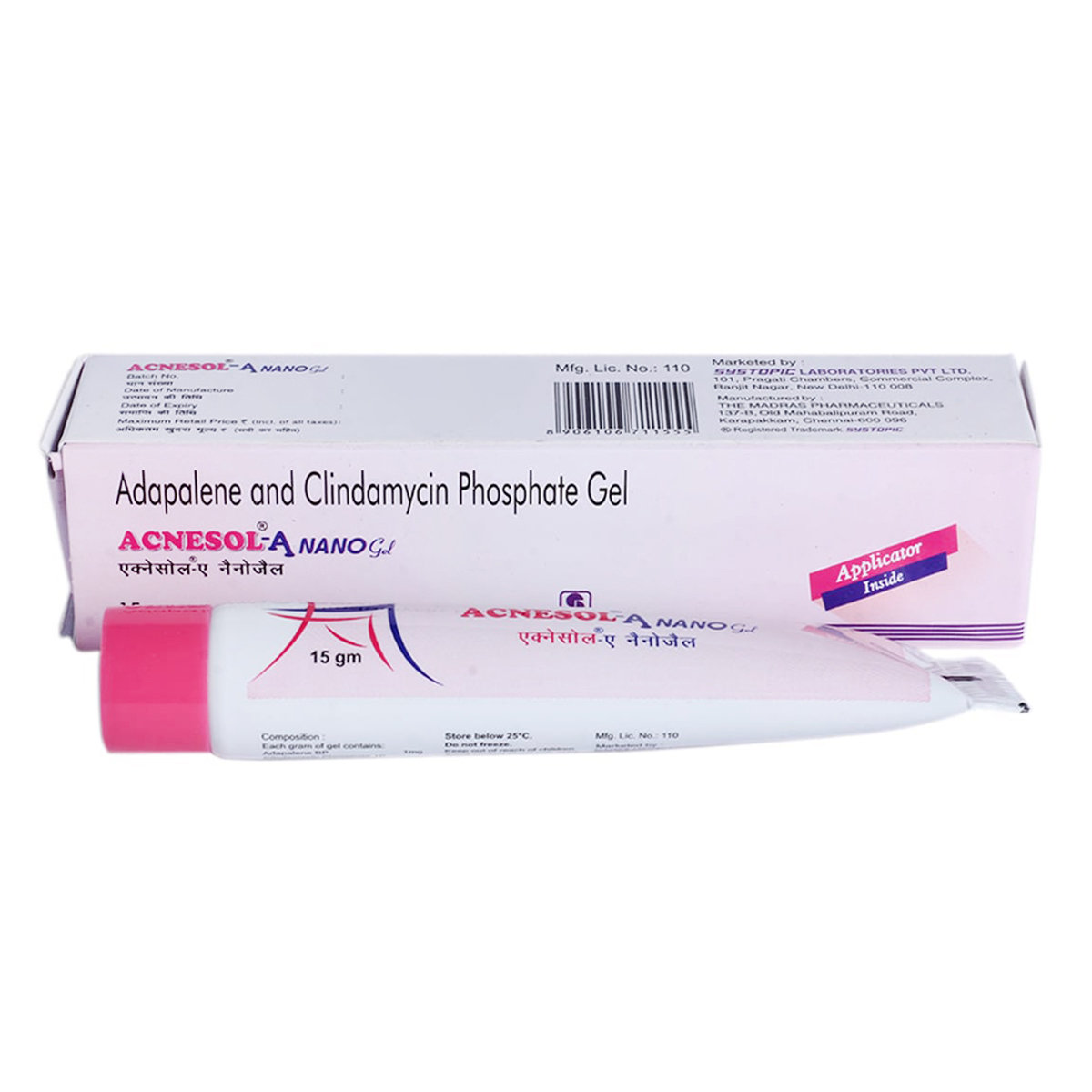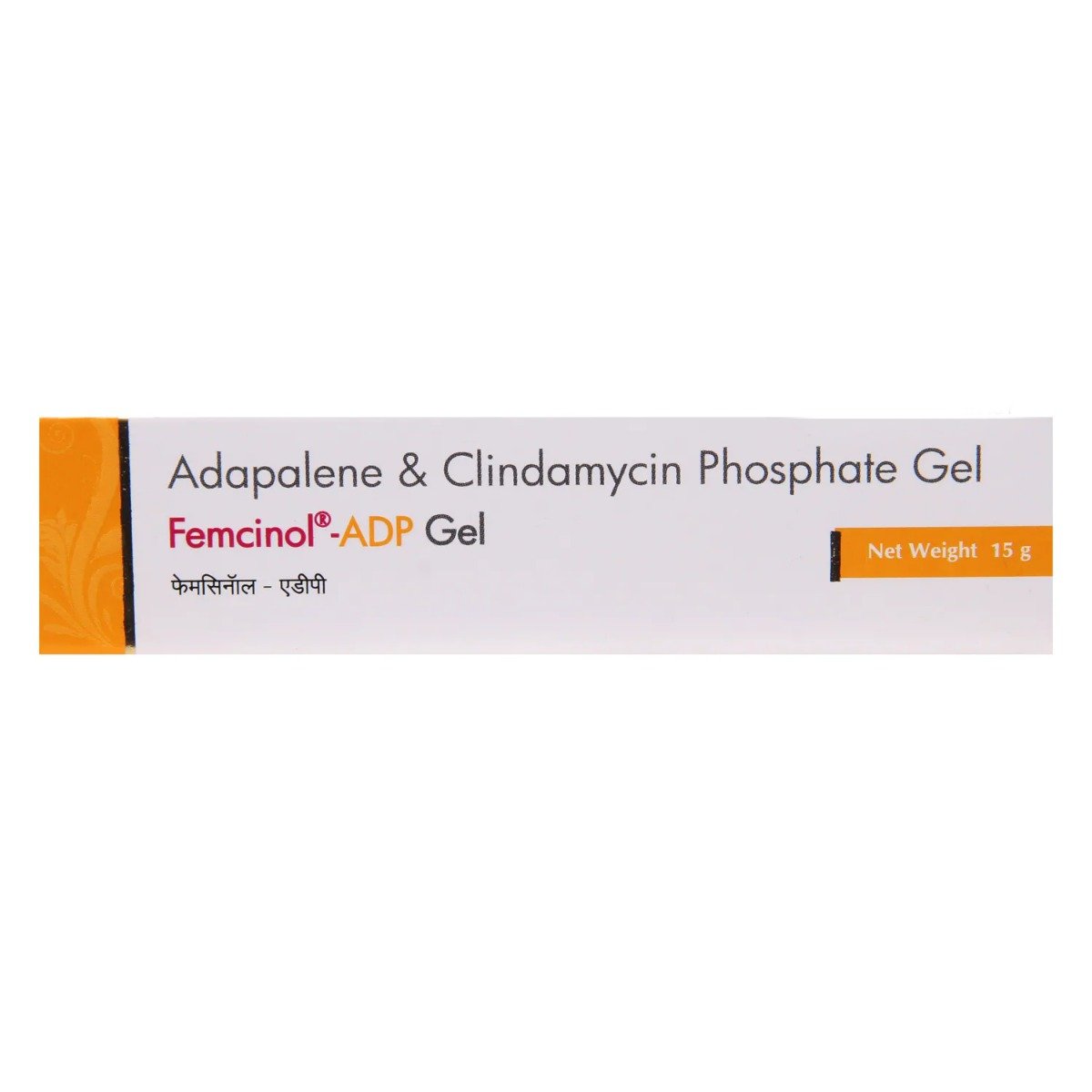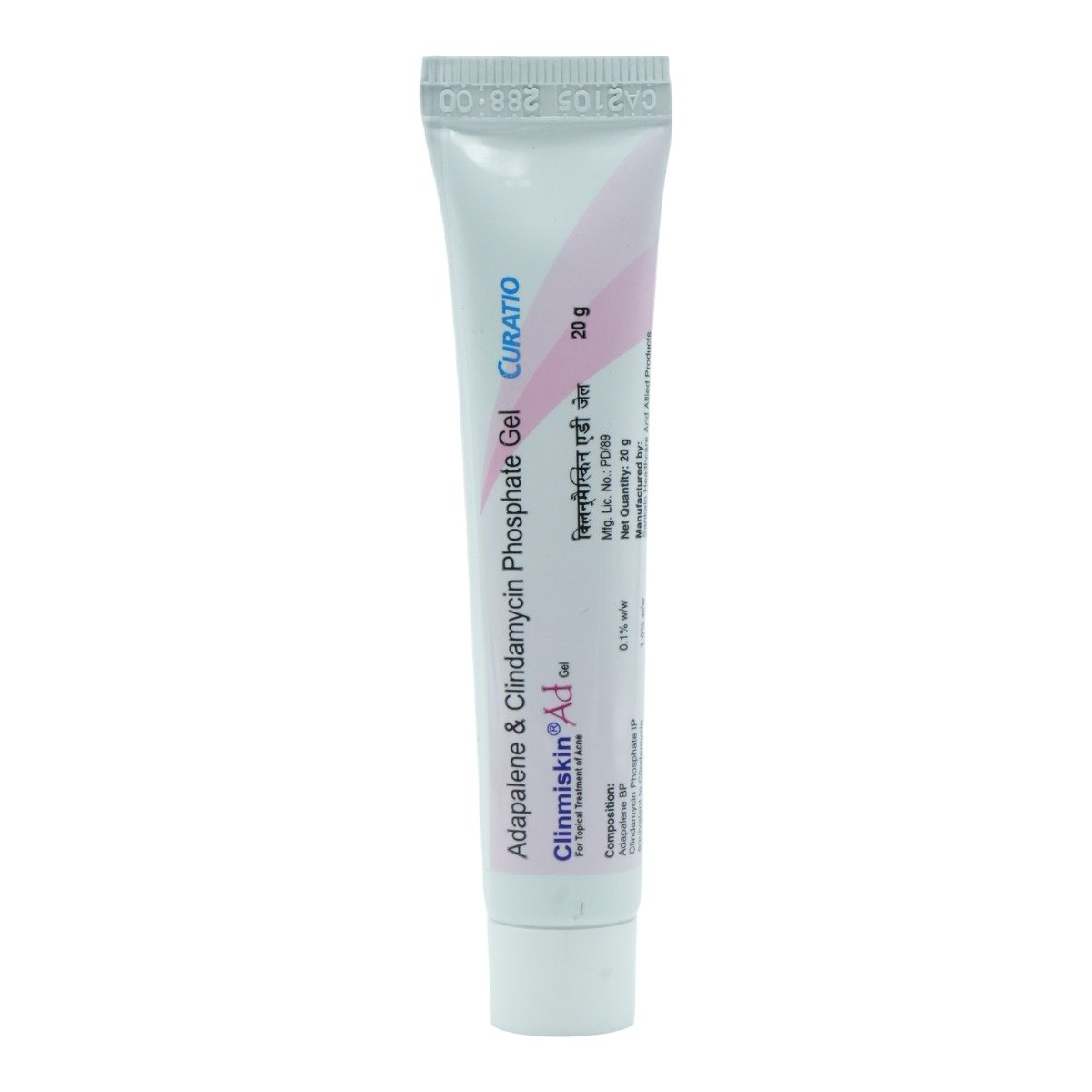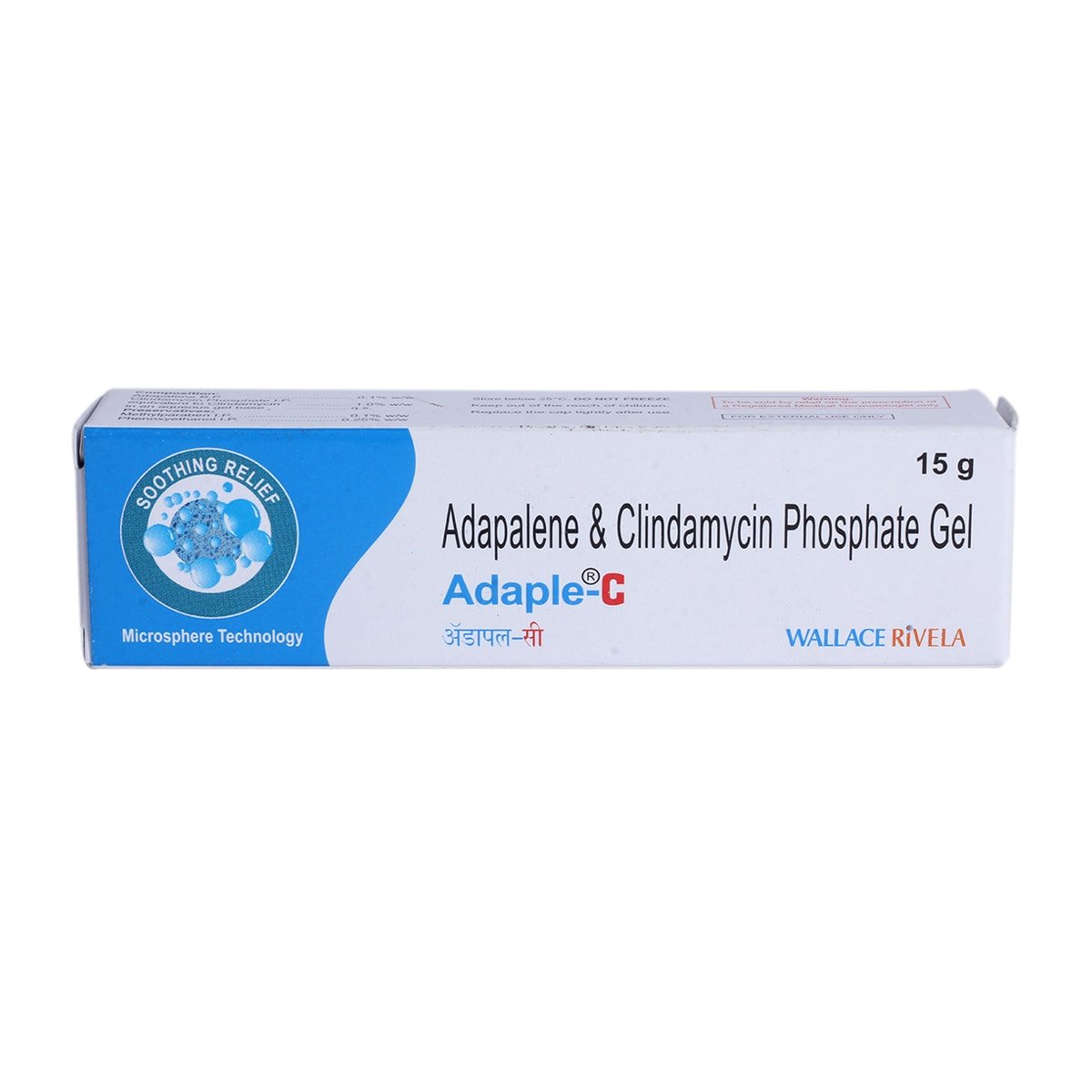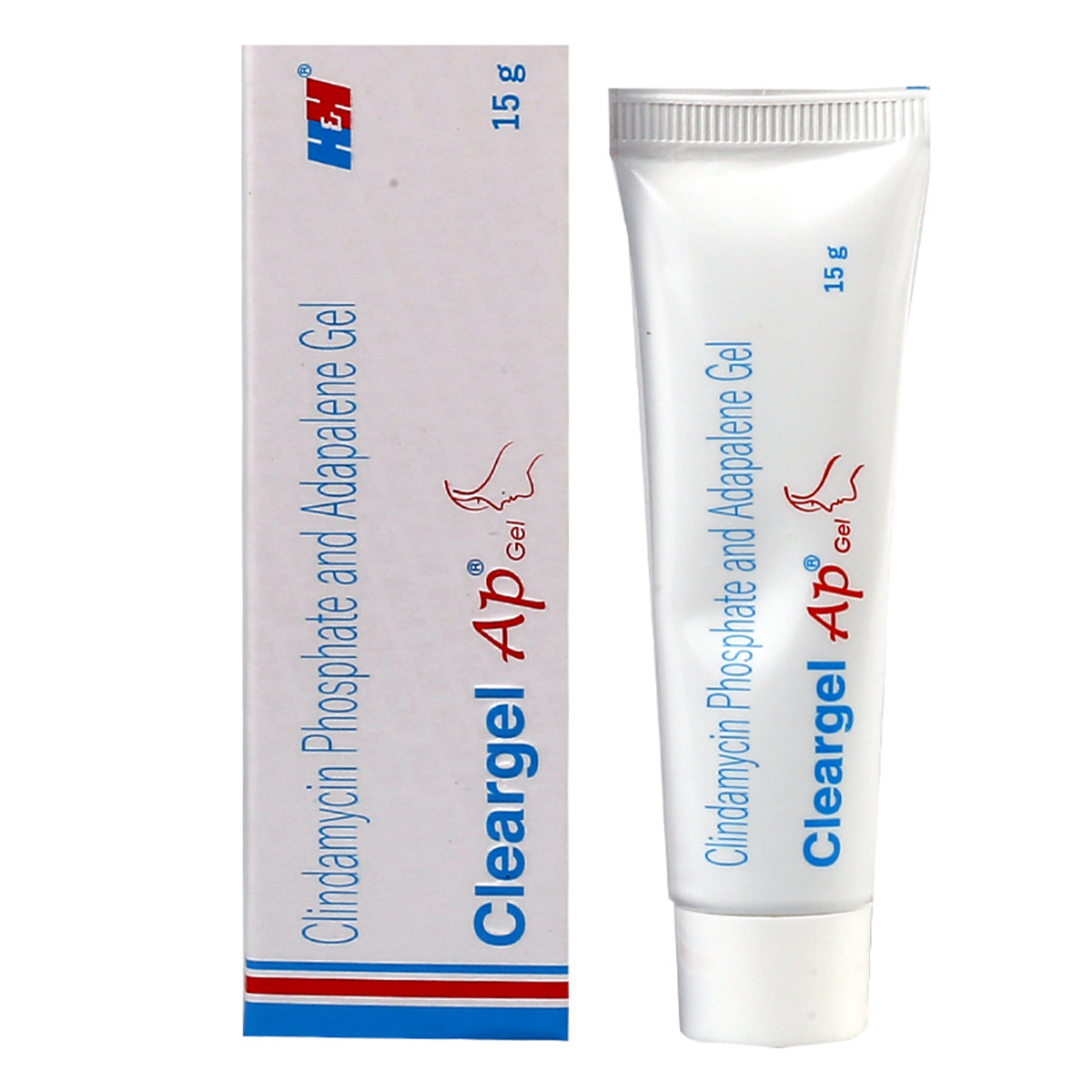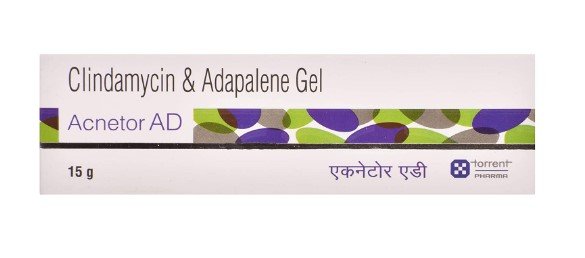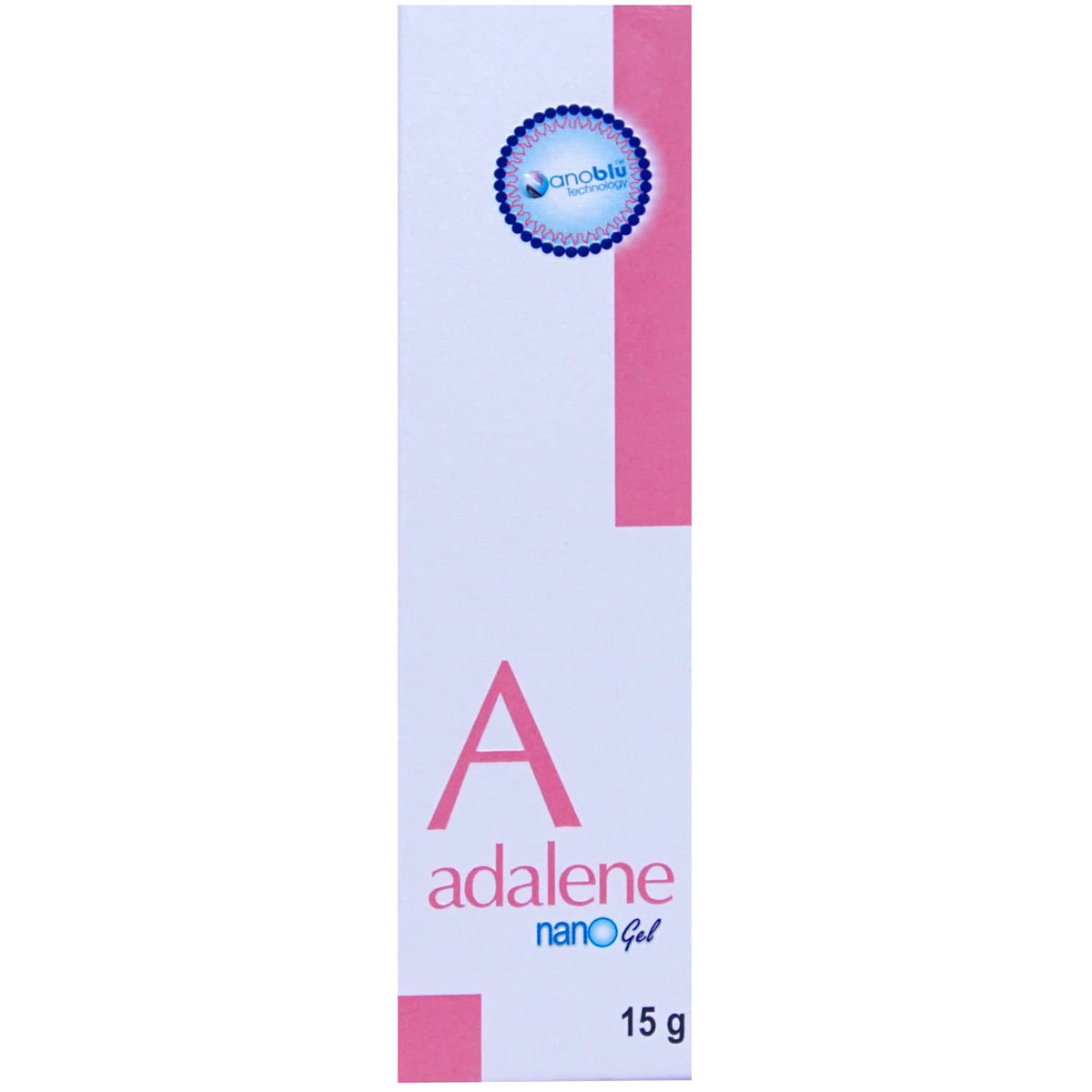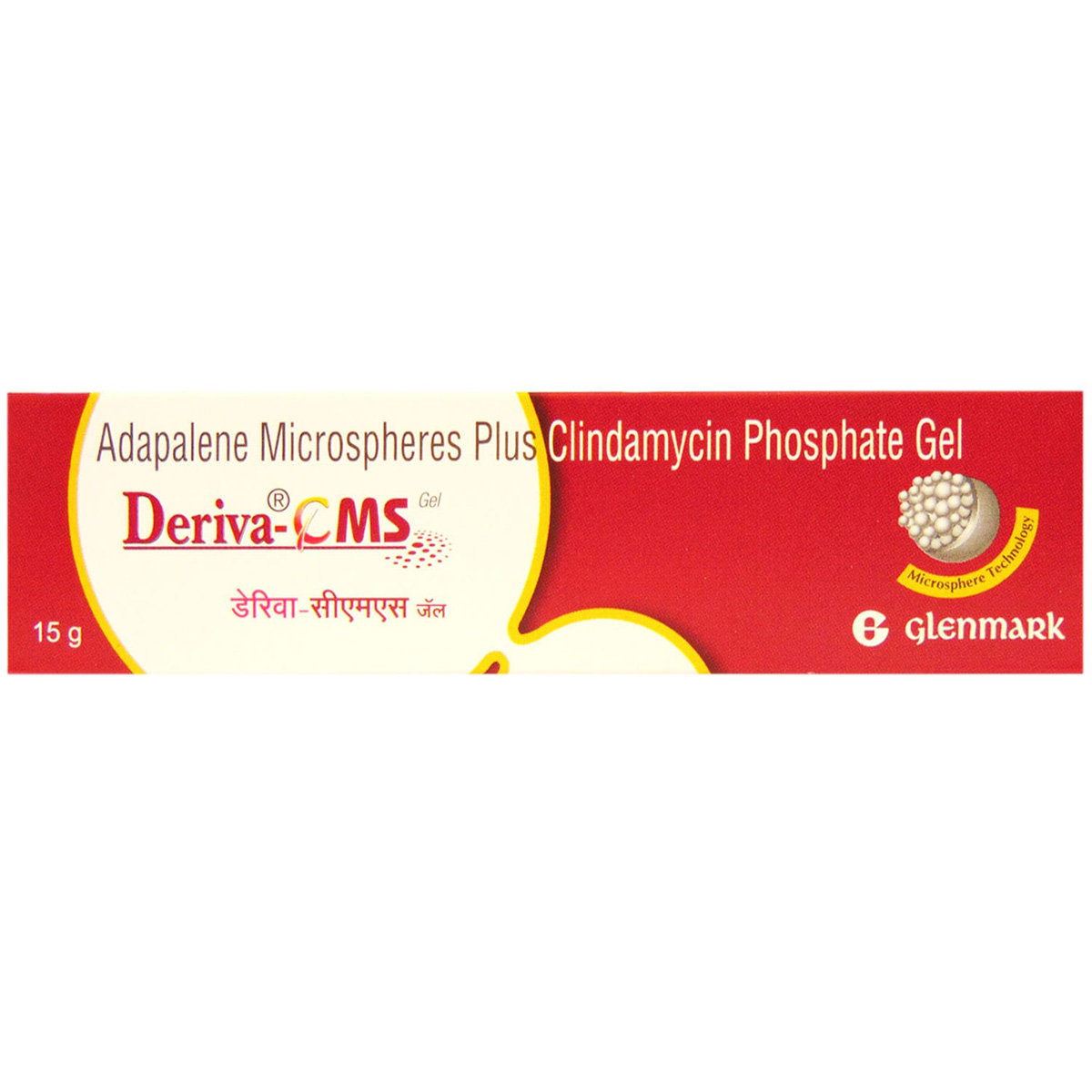Lacne Gel 15 gm
MRP ₹231.5
(Inclusive of all Taxes)
₹23.1 Cashback (10%)
Provide Delivery Location
Online payment accepted
 Prescription drug
Prescription drugWhats That
Composition :
Manufacturer/Marketer :
Consume Type :
Expires on or after :
Return Policy :
About Lacne Gel
Lacne Gel belongs to the class of dermatological preparations called 'antiacne' used to treat acne (pimples). Acne is a skin condition that is common and occurs when hair follicles are blocked with dead skin cells and oil. The acne-causing bacteria feeds on sebum (natural oil produced by skin) causing redness and swelling.
Lacne Gel is a combination of two medicines, namely: Adapalene (human-made vitamin A) and Clindamycin (antibiotic). Adapalene (human-made vitamin A) works by loosening the cells on the skin’s surface and unblocks pores by reducing the production of oil in the skin thereby reducing the formation of pimples, whiteheads, and blackheads on the skin surface. Clindamycin belongs to the class of antibiotics that works by inhibiting the production of essential proteins that are necessary for bacteria to grow, multiply and increase in numbers. Altogether it stops or slows down the growth of bacteria and prevents the growth of acne.
Lacne Gel is only for external use. Take a small amount of Lacne Gel on the finger and apply it as a thin layer on the clean and dry affected area. Avoid contact of Lacne Gel with nose, ears, mouth, or eyes. In case Lacne Gel comes in contact with these areas accidentally, rinse with warm water thoroughly. Your doctor will advise you how often you take Lacne Gel based on your medical condition. In some cases, you may experience skin peeling, dry skin, irritation, redness, itching, or burning sensation at the site of application. Most of these side effects of Lacne Gel do not require medical attention and gradually resolve over time. However, if the side effects persist or worsen, please consult your doctor.
If you are known to be allergic to Lacne Gel or any other medicines, please tell your doctor. Do not apply Lacne Gel to cuts, open wounds, broken, sunburnt or sensitive areas of skin. Avoid sun exposure while using Lacne Gel as it may make the skin more sensitive to sunlight and cause sunburn. Wear protective clothing and use sunscreen while going out to protect your skin from sunburn. If you are pregnant or breastfeeding, please inform your doctor before taking Lacne Gel. Do not apply Lacne Gel in large amounts or use for a long time than prescribed as it does not give quick or better results but increases the risk of side effects such as redness, irritation, skin peeling, or discomfort. If you have intestine problems or eczema, please inform your doctor before taking Lacne Gel.
Uses of Lacne Gel
Directions for Use
Key Benefits
Lacne Gel is a combination of two drugs; namely, Adapalene and Clindamycin used to treat acne (pimples). Adapalene is a retinoid (human-made vitamin A) that loosens the cells in the skin’s surface and unblocks pores by reducing the production of oil in the skin. Thereby, decreases pimples, spots, whiteheads and blackheads. Also, Adapalene increases the production of new skin cells and helps in natural exfoliation (removal of dead skin cells) of outer layers of the skin. Clindamycin is a broad-spectrum antibiotic that acts against both aerobic (grow in the presence of oxygen) and anaerobic (grow in the absence of oxygen) gram-negative and gram-positive bacteria. Clindamycin inhibits the production of essential proteins that are necessary for bacteria to grow, multiply and increase in numbers. Together it stops or slows down the growth of bacteria, causing acne and heals the skin by reducing swelling and redness.
Storage
- Apply moisturizer immediately after showering or bathing.
- Use a moisturizer containing lanolin, petroleum jelly, glycerine, hyaluronic acid or jojoba oil.
- Do not use hot water for bathing. Instead use warm water and limit showers and bath to 5 to 10 minutes.
- Apply a sunscreen with SPF-30 or higher.
- Avoid harsh soaps, detergents and perfumes.
- Do not scratch or rub the skin.
- Drink adequate water to prevent dehydration.
- Wear pants, full sleeves and a wide-brimmed hat while going out in the sun.
- Consult your doctor if you experience skin redness, itching, or irritation after taking medication.
- Apply cool compresses or calamine lotion to the affected skin area to reduce irritation.
- Stay hydrated by drinking plenty of water to help alleviate symptoms and keep your skin soothing.
- Monitor your skin condition closely and promptly report any changes, worsening symptoms, or concerns to your healthcare provider.
Drug Warnings
If you are known to be allergic to Lacne Gel or any other medicines, please tell your doctor. Do not apply Lacne Gel to cuts, open wounds, broken, sunburnt or sensitive areas of skin. Avoid sun exposure while using Lacne Gel as it may make the skin more sensitive to sunlight and cause sunburn. Wear protective clothing and use sunscreen while going out to protect your skin from sunburn. If you are pregnant or breastfeeding, please inform your doctor before taking Lacne Gel. Do not apply Lacne Gel in large amounts or use for a long time than prescribed as it does not give quick or better results but increases the risk of side effects such as redness, irritation, skin peeling, or discomfort. If you have intestine problems or eczema, please inform your doctor before taking Lacne Gel.
Drug-Drug Interactions
Drug-Drug Interactions
Login/Sign Up
Drug-Food Interactions
Drug-Food Interactions
Login/Sign Up
Diet & Lifestyle Advise
- Avoid sun exposure while using Lacne Gel as it may make the skin more sensitive to sunlight and cause sunburn. Try to wear protective clothing and use sunscreen while going out to protect your skin from sunburn.
- Regular exercise can improve your mood and self-esteem though it doesn’t clear acne. Take a shower immediately after finishing exercise as sweat may irritate acne.
- Do regular hair wash regularly and avoid hair falling across the face.
- Remove the make-up completely before going to bed.
- Avoid using products that may cause skin irritation such as harsh soaps, skin cleansers, shampoos, hair removers or waxes, hair colouring or permanent chemicals, detergents, and rough fabrics.
Side Effects of Lacne Gel
- Skin peeling
- Dry skin
- Irritation, redness, itching or burning sensation at the site of application
Habit Forming
Therapeutic Class
All Substitutes & Brand Comparisons
RX
Cligel A Gel 15 gm
East West Pharma India Pvt Ltd
₹169
(₹10.14/ 1gm)
26% CHEAPERRX
Nilac A Gel 20 gm
Micro Labs Ltd
₹263
(₹11.84/ 1gm)
14% CHEAPERRX
Nioclean AD Gel 15 gm
Klm Laboratories Pvt Ltd
₹201.5
(₹12.09/ 1gm)
12% CHEAPER
Author Details
We provide you with authentic, trustworthy and relevant information
Drug-Diseases Interactions
Drug-Diseases Interactions
Login/Sign Up
FAQs
Drug-Drug Interactions Checker List
- ISOTRETINOIN
- METHOXSALEN
- BENZOYL PEROXIDE
- SALICYLIC ACID
- ATRACURIUM
- PANCURONIUM
- AMINOLEVULINIC ACID
- CISATRACURIUM
- DOXACURIUM
Special Advise
- You are advised to apply any other lotions, creams o,r ointments including cosmetics and moisturizers after 30 minutes of applying Lacne Gel as using both at the same time may reduce the effectiveness of Lacne Gel.
- Avoid contact of Lacne Gel with nose, mouth, eyes o,r ears. In case Lacne Gel comes in contact with these areas accidentally, rinse with water.
- Do not squeeze, pop or pick spots as it may worsen them and cause permanent scarring.
Disease/Condition Glossary
Acne (pimples): It is a common skin condition that occurs when hair follicles are blocked with dead skin cells and oil, causing pimples, whiteheads, and blackheads. Acne affects people of all ages but is most common among teenagers. The symptoms of acne include pus-filled pimples, uninflamed (not swollen) blackheads, red, large, and tender bumps. The treatment for acne includes certain creams, cleansers and antibiotics.

Have a query?
Alcohol
Safe if prescribed
Interaction of Lacne Gel with alcohol is unknown. Please consult a doctor before consuming alcohol while using Lacne Gel.
Pregnancy
Consult your doctor
The safety of Lacne Gel in pregnant women is unknown. Therefore, it is given to pregnant women only if the doctor thinks benefits outweigh risks.
Breast Feeding
Consult your doctor
Do not apply Lacne Gel on the breast. You are advised to breastfeed only if the doctor thinks benefits are greater than risks.
Driving
Safe if prescribed
Lacne Gel usually does not affect your ability to drive or operate machinery.
Liver
Consult your doctor
If you have any concerns regarding the use of Lacne Gel in patients with Liver problems, please consult a doctor.
Kidney
Consult your doctor
If you have any concerns regarding the use of Lacne Gel in patients with kidney problems, please consult a doctor.
Children
Safe if prescribed
Lacne Gel is not recommended for children as the safety and effectiveness were not established.

